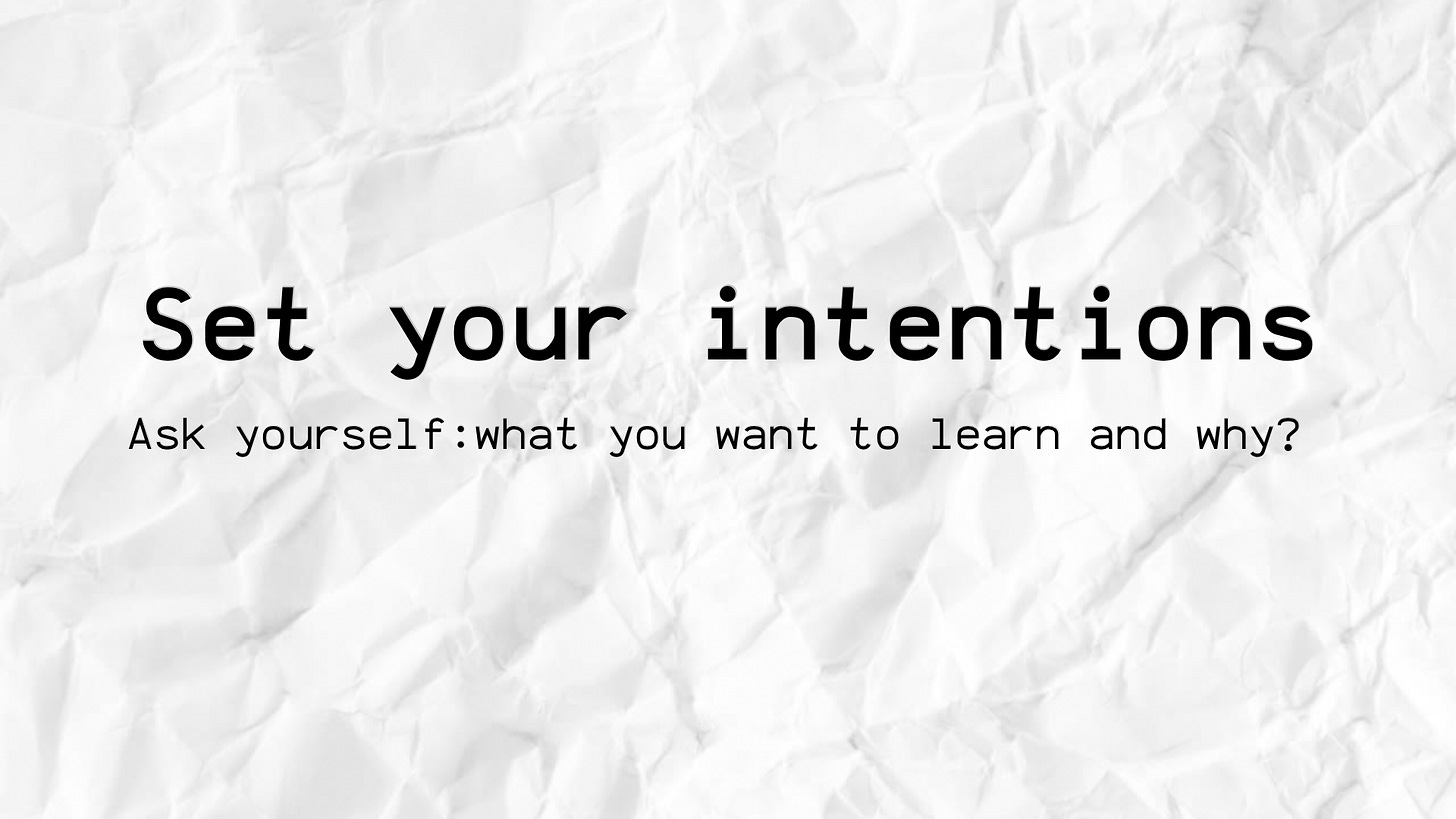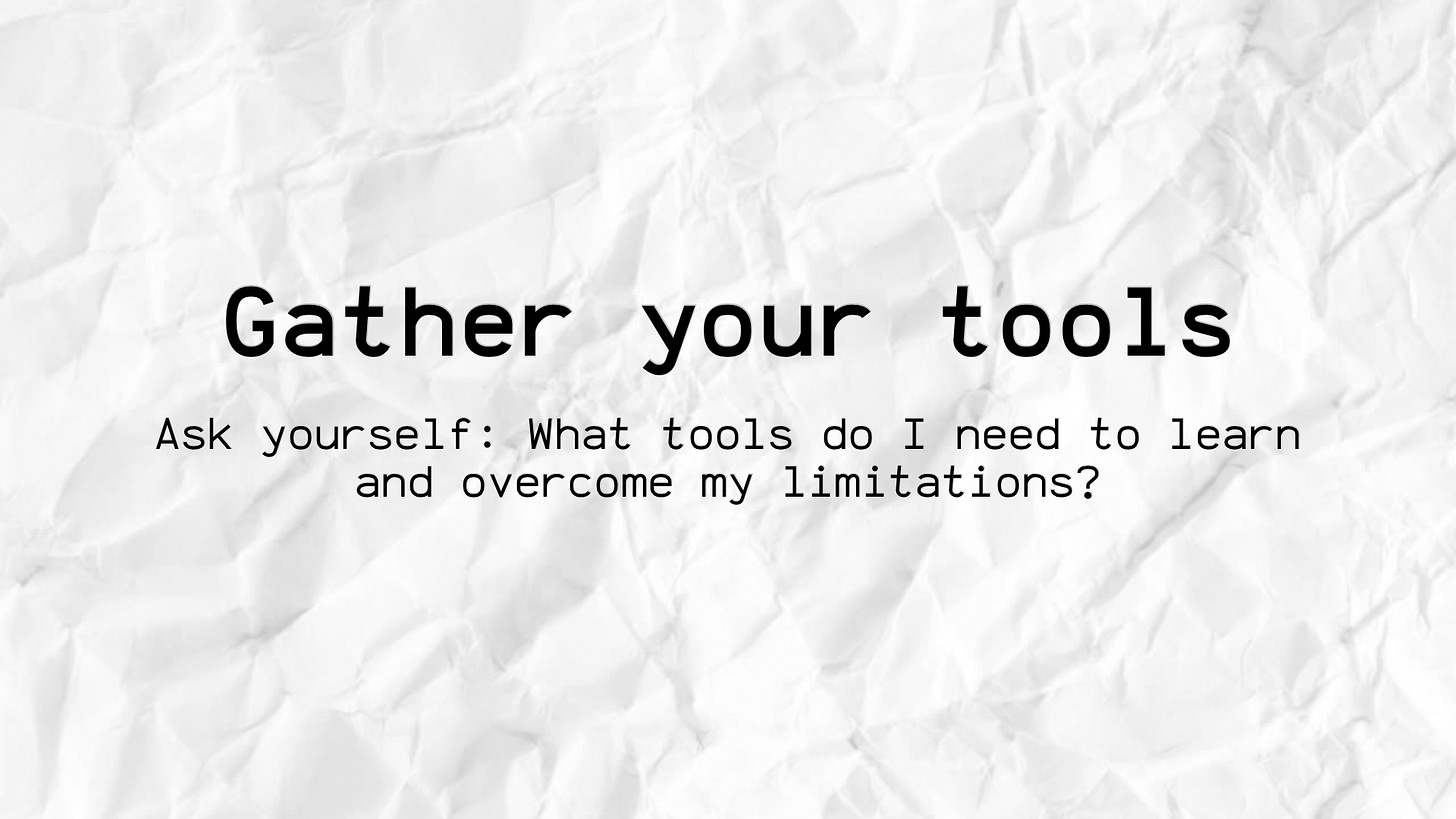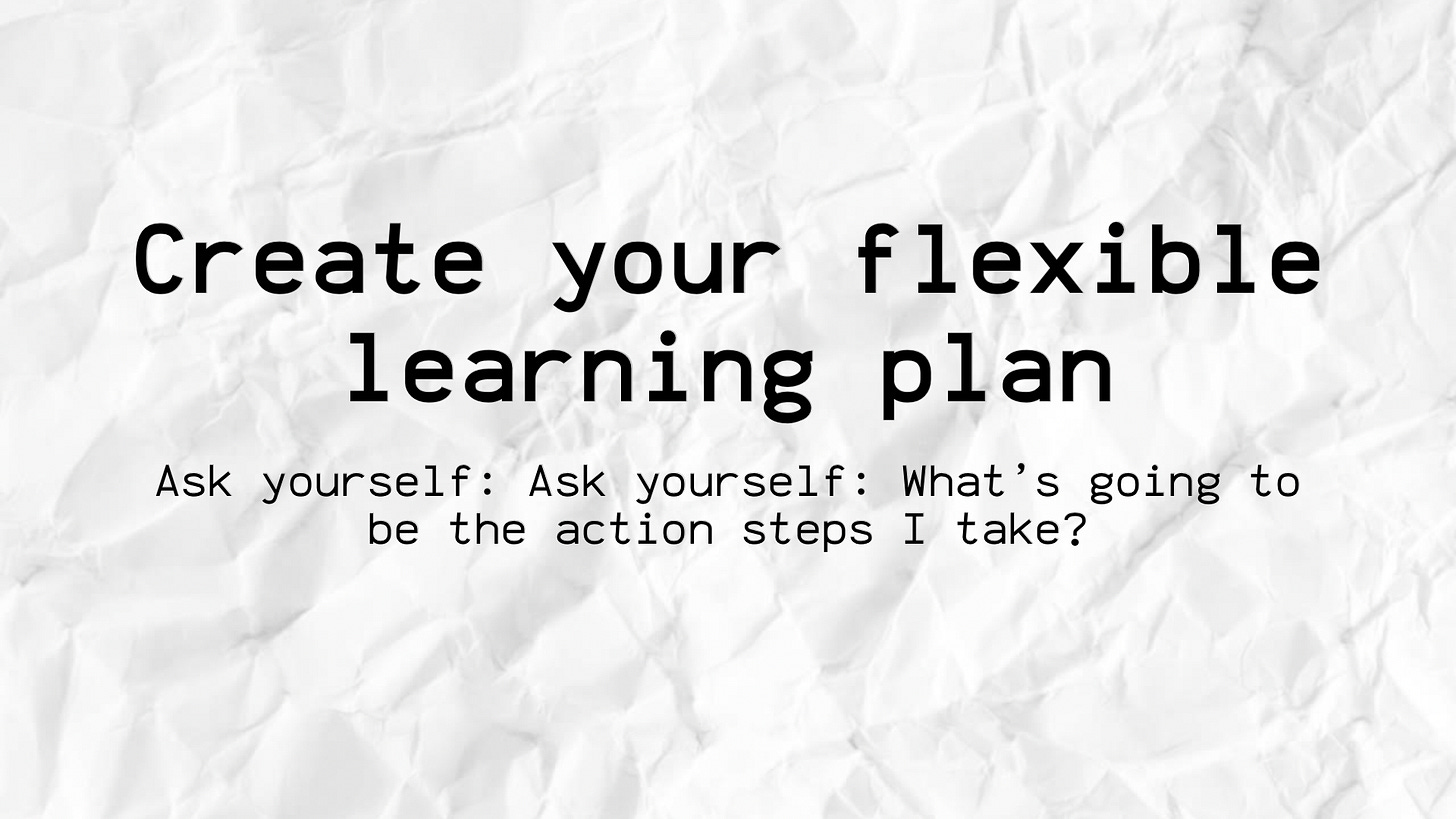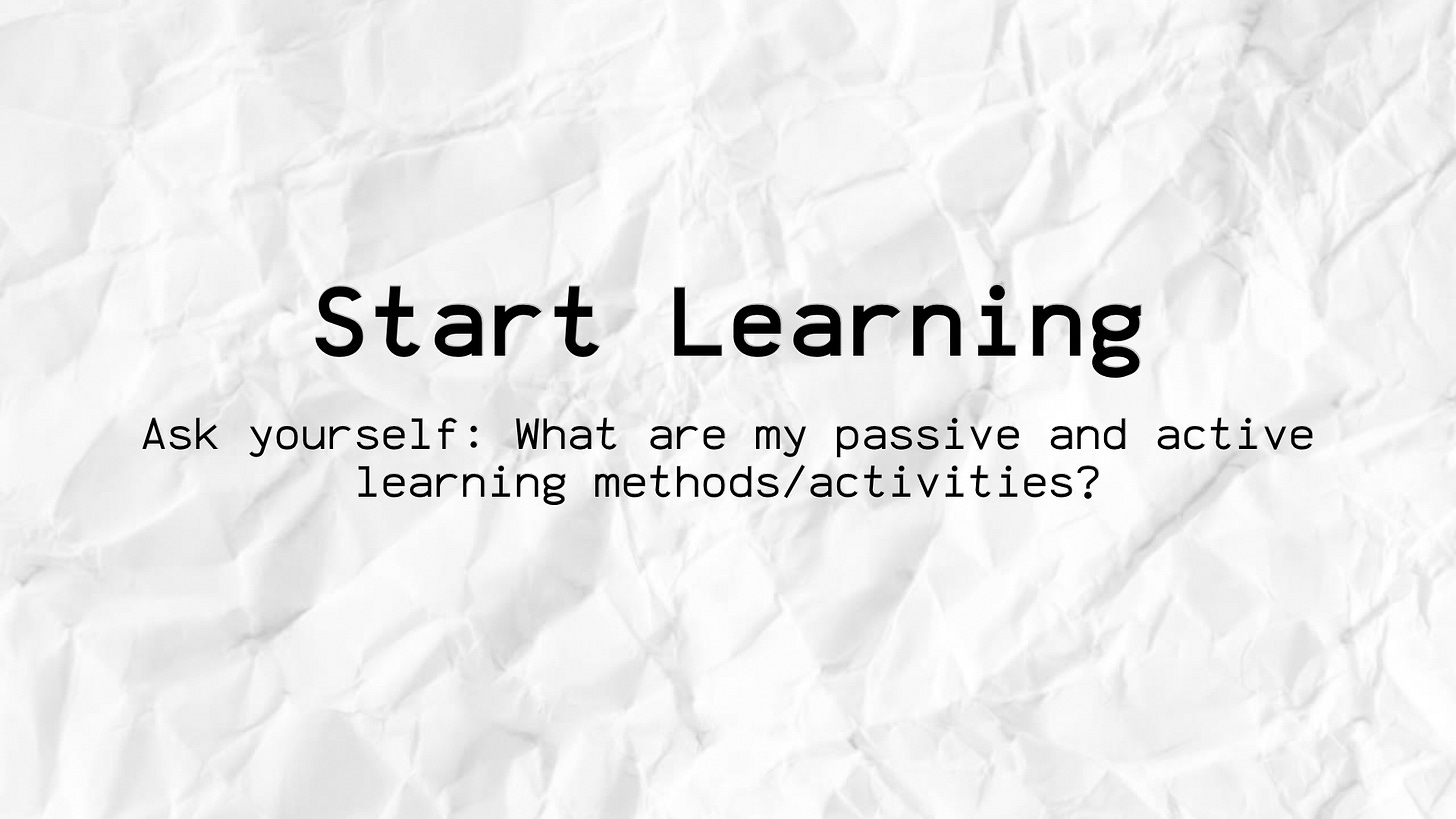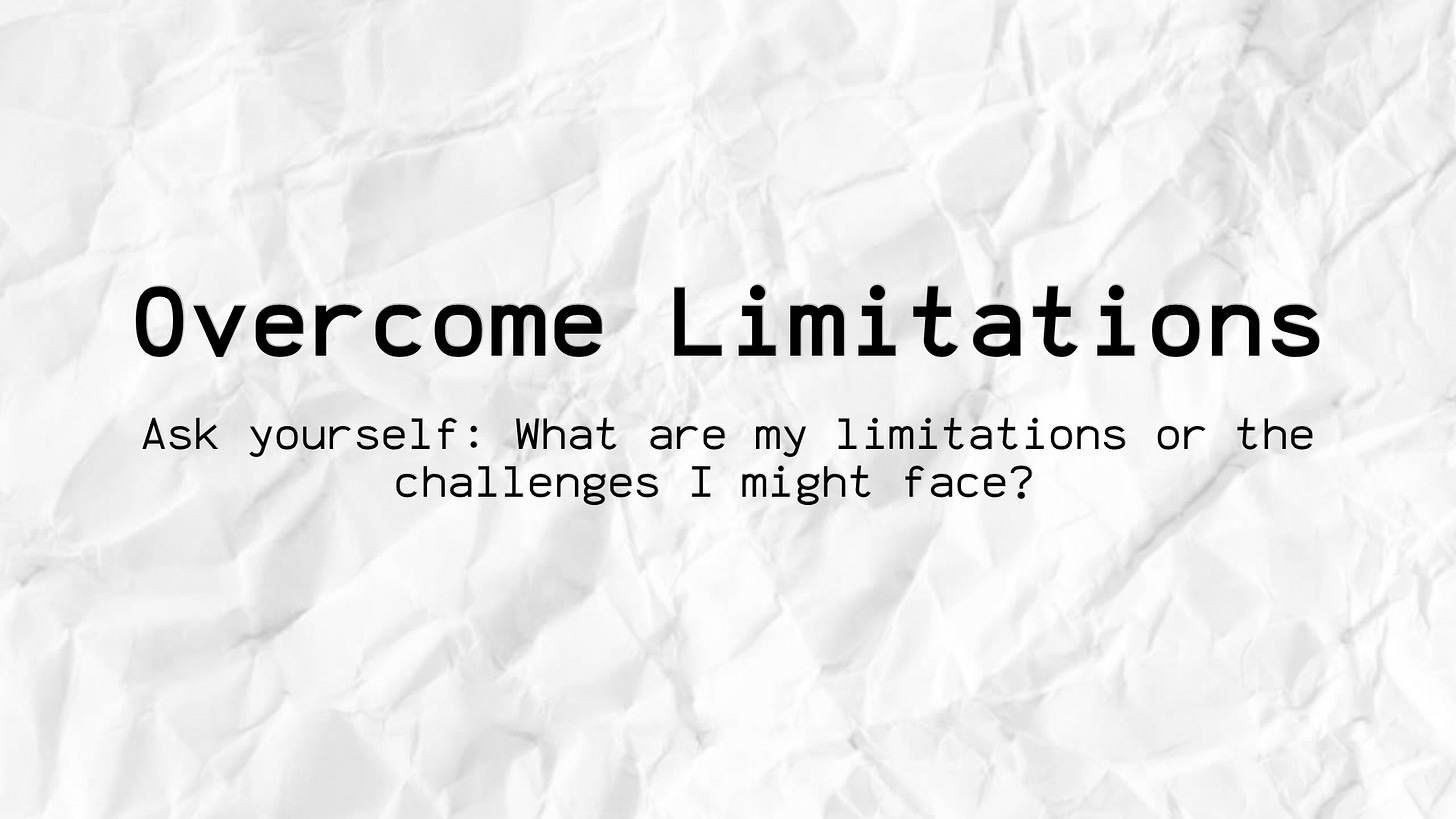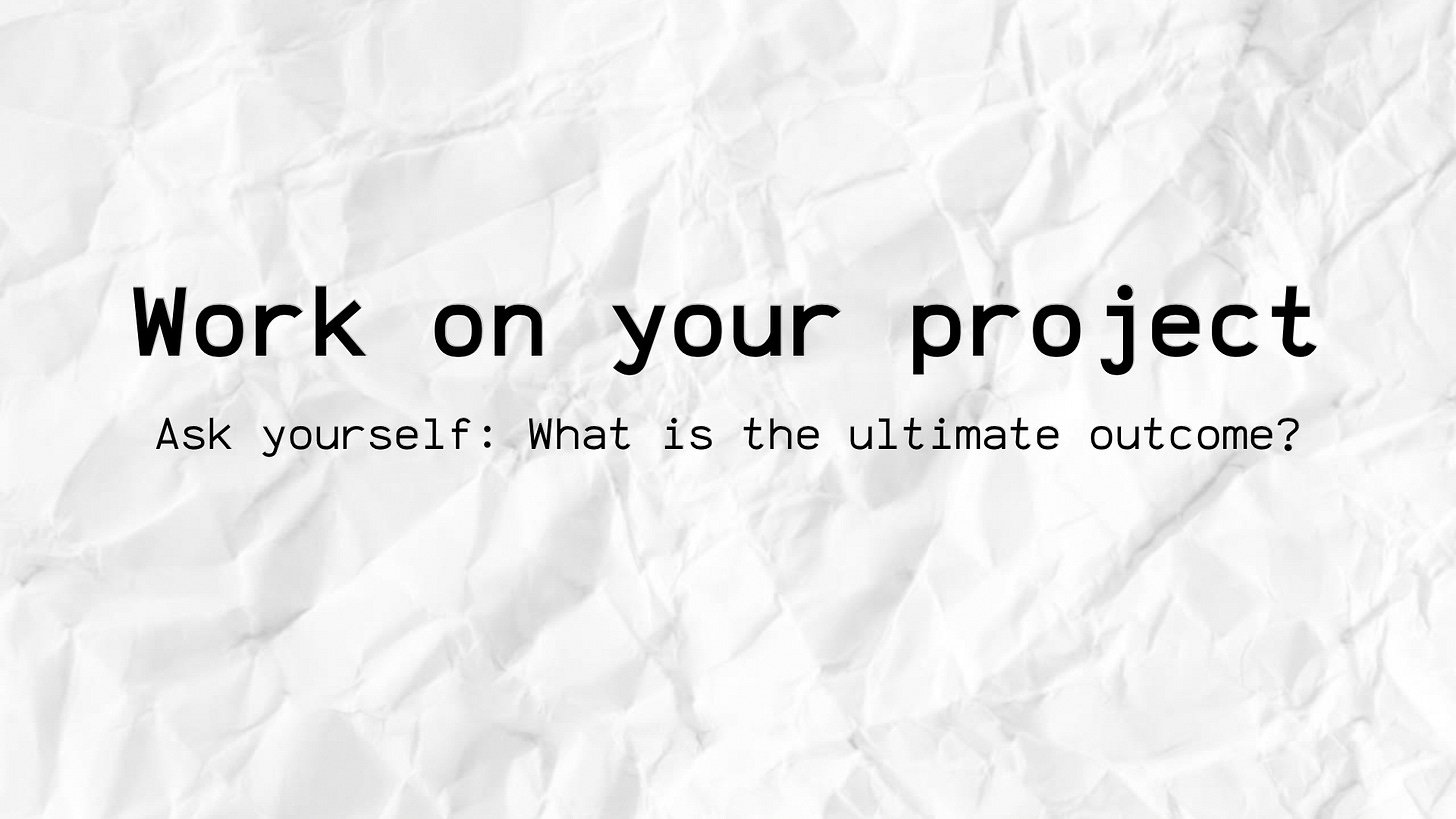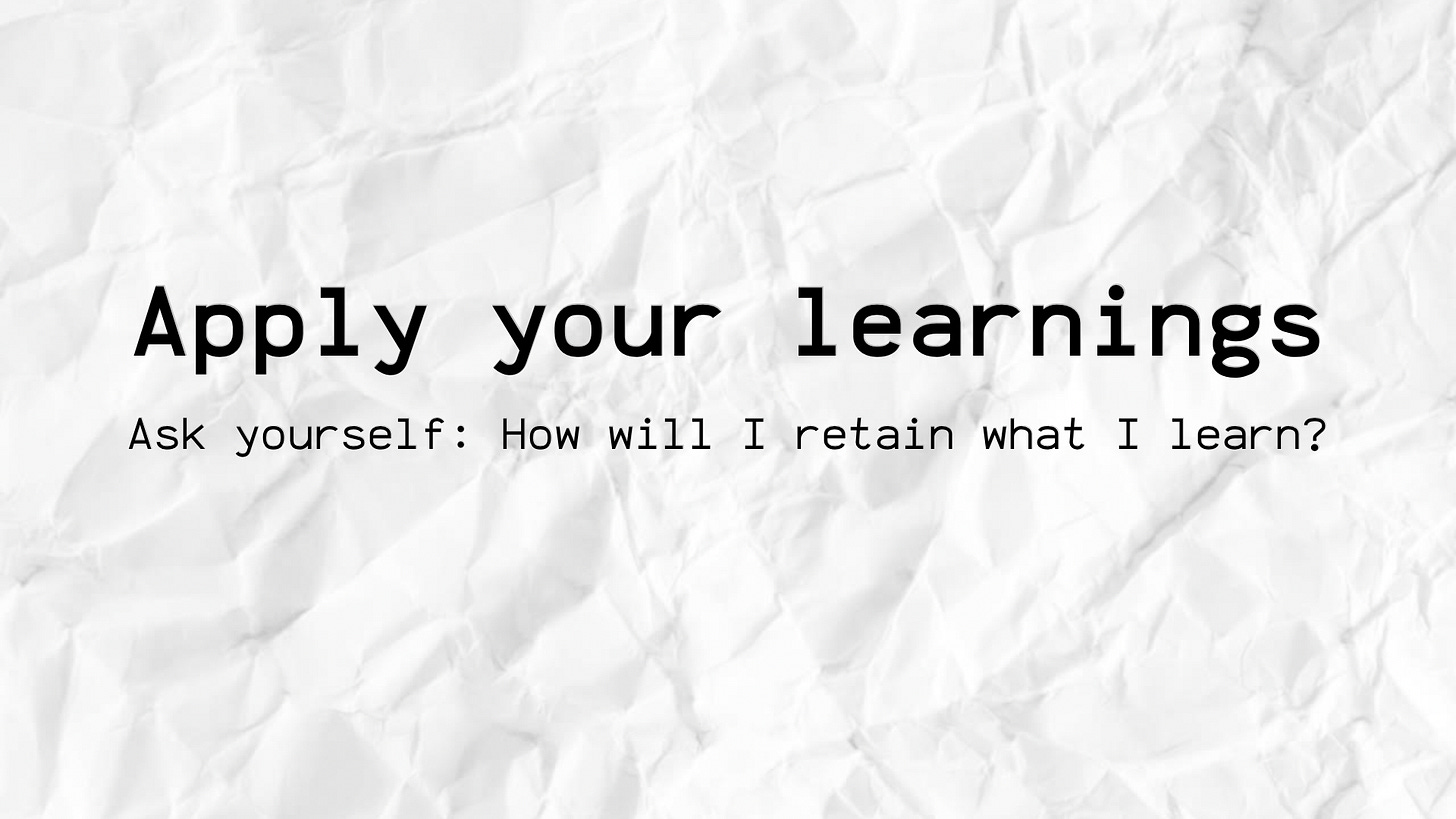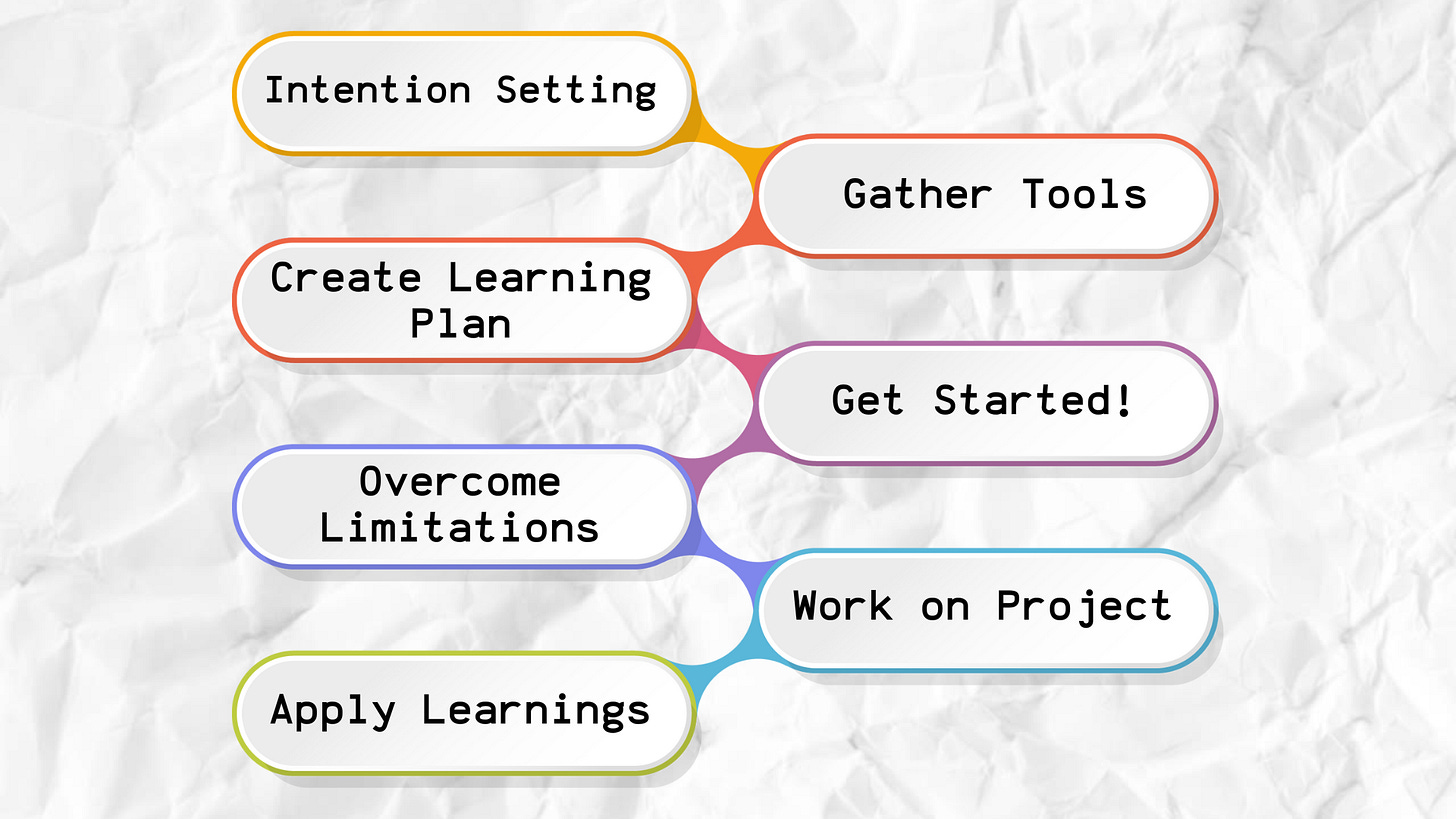Becoming Autodidactic: a guide to self-directed learning for changemakers
How to plan and structure your self-learning projects
In a world brimming with information and opportunities, the role of an autodidact has never been more crucial, especially for polymath changemakers. Autodidacticism, or self-directed learning, empowers individuals to take control of their education, explore diverse fields, and continually evolve their skills. For changemakers who embody the spirit of multidimensional growth, becoming an autodidact opens up endless possibilities for not only personal or professional development, but for our social impact efforts. Today, autodidacticism continues to thrive as a pathway for the timeless pursuit of knowledge and mastery, but autodidacticism has a rich and varied history that spans centuries and cultures.
Throughout history, individuals with a thirst for knowledge have pursued education outside formal institutions, relying on personal initiative, curiosity, and resourcefulness to acquire skills and expertise. Ancient philosophers like Socrates and Aristotle advocated for self-directed inquiry and critical thinking, laying the groundwork for autodidactic principles. During the Renaissance, self-taught scholars such as Leonardo da Vinci and Galileo Galilei made groundbreaking discoveries in science, art, and philosophy through independent study and experimentation. The Enlightenment era saw the rise of autodidacticism as a means of intellectual liberation and self-empowerment, with figures like Benjamin Franklin and Mary Wollstonecraft advocating for self-education and lifelong learning. In modern times, technological advancements and access to information have democratised autodidacticism, enabling individuals worldwide to pursue learning opportunities outside traditional educational frameworks.
Personally, I’ve always loved learning new things and applying them to my passion-projects, but it took a long time for me to develop a strategy and system for my self-directed learning efforts. After nearly a decade of intentional self-directed learning, I have finally refined a system that works for me, largely in part to Notion allowing me to have a single location for planning, managing, and executing my projects from any digital device. With a solid Notion-setup for my learning systems, and commonplace books for the learning process, this is my 7-step process for planning my learning projects:
Set your learning intentions
Setting clear intentions for learning is foundational to a successful autodidactic journey. When you define your learning goals with clarity and purpose, you provide yourself with a roadmap for focused and effective learning. These intentions act as guiding stars, directing your attention, efforts, and resources towards acquiring specific knowledge, skills, or experiences that align with your aspirations and objectives. Clear intentions not only help you stay motivated and accountable but also enable you to measure progress, celebrate achievements, and make informed decisions about your learning path. Whether it's mastering a new language, gaining expertise in a particular field, or expanding your creative abilities, setting clear intentions empowers you to transform your aspirations into tangible learning outcomes.
Identify areas of interest that align with your passions, goals, and the impact you want to make in the world. Answer these questions:
What’s my intention? Start by defining what you want to learn and why. It’s fine to want to learn about a big broad topic, but you need to start somewhere specific first, and you want to know why you’re doing it, because the power of your why will always trump your willpower when things get tough.
For example, if you want to learn about marketing, what specific aspect of marketing do you want to learn first? Social media marketing? Digital marketing? SEO? And why do you want to learn it— do you have a specific project that you want to apply your marketing skills to? Are you looking to add marketing to your resume? Knowing your why will help you to define your outcome later.
What are my limitations or the challenges I might face? Don’t kid yourself, you will face challenges, and it’s better to anticipate them now so you can deal with them when they inevitably arise.
For example, if you are learning how to grow food but you live in an urban area without much yard space, you need to know that despite big dreams to grow your own food you might only be able to grow herbs on your balcony in winter due to the lack of sun. Identify the problem, then plan how you will deal with it- maybe you’ll volunteer at a community garden.
What tools do I need? Identify not only the tools you will need to achieve your goal, but also the tools to overcome any of the anticipated limitations.
For example, if you are aiming to learn a language but you know there will be periods in your life when you’re too busy for your 30 minute daily lesson, you might subscribe to Duolingo so that you can aim to at least do a 5 minute practice before bed each night. This might be in addition to the main language-learning platform you intend to use.
How will I retain what I learn? You don’t just want to be learning endlessly with no way of applying or testing your knowledge. You need to not only have a way of managing the learning process (such a Notion wiki) but also a project that you will be applying the knowledge or skill to— like a commonplace practice. This can be a low-stakes project that only you know about.
For example, if you’re learning how to paint with watercolours, you can retain your knowledge with an art journal that you aim to practice in once a week, or whenever you take a video tutorial. It doesn’t need to be a grand project, it just needs to be a way for you to apply your knowledge.
What’s going to be the action step? Your learning process needs to be a combination of both passive and active learning. What is going to be the key actions you take to learn? How will you learn? What are your learning objectives? Who will you learn from/with? How will you evaluate your learning journey and be reflexive if you need to adapt?
For example, if you are learning how to play piano you might split your learning time between watching videos about music theory so you can learn the basics of reading sheet music, scales and keys (this would be passive learning), and taking classes with a local piano tutor where you actually play your favourite songs (this would be active learning). You might find after some time that you aren’t really learning how to apply the music theory because you are learning how to play songs from memory rather than using sheet music, so you need to be reflexive and change your action step by finding a teacher who will teach you how to play and read sheet music.
What is the ultimate outcome? You have to be able to know whether or not your endeavours have been successful so you can measure and track your progress. Don’t attach a time-limit to the outcome (you don’t want to make it a ‘SMART’ goal unless you need to have it done by a specific time,) that way you won’t be inclined to give up if you don’t reach your goal. Define the outcome you want, and keep working at your own pace until you get there. Don’t change your desired outcome — if you are struggling to reach it, you will change the inputs (the action steps you take) until you find a method of learning that works best for you.
For example, if you’re learning how to code, you might set a goal to be able to create a simple website landing page with your new coding skills. Or, if you’re learning a new language you might set the goal to be able to have a conversation with a native speaker of that language about a certain topic. These are clear, tangible outcomes that your efforts will produce.
Gather your tools
Whether you're diving into a new skill, delving into a complex subject, or exploring a creative pursuit, having the right tools at your disposal can significantly enhance your learning experience. These tools may include textbooks, online courses, software applications, specialised equipment, or even mentorship from experienced individuals. Take the time to research and identify the most relevant and effective tools for your learning objectives. Additionally, don't overlook the importance of creating a conducive learning environment, whether it's a quiet study space, access to digital resources, or a supportive community of learners. By equipping yourself with the right tools and resources, you set yourself up for success and maximize your potential for growth and mastery in your chosen area of learning.
Connecting with mentors, experts, and peers is essential for enriching your autodidactic journey. Seek out individuals who can provide valuable guidance, insights, and feedback on your learning path. Engage in mentorship programs, whether formal or informal, to benefit from the wisdom and experience of seasoned professionals in your field of interest. Attend networking events and join online communities to expand your network and tap into a diverse range of perspectives and knowledge. By fostering these connections, you not only gain valuable support but also open doors to new opportunities, collaborations, and learning experiences that can accelerate your growth and development as an autodidact.
Create your flexible learning plan
Autodidacticism is a journey that demands self-discipline and consistency. To succeed as an autodidact, it's essential to establish a structured learning routine that seamlessly integrates into your daily schedule. Dedicate specific, regular time slots to engage in learning activities, whether it's early mornings, evenings, or weekends. By setting clear milestones and goals, you create a roadmap for your progress and development. Track your achievements along the way, no matter how small, and celebrate each milestone reached. This practice not only keeps you motivated but also helps maintain focus and momentum in your learning journey. Through self-discipline, consistent effort, and a systematic approach to learning, you can unlock your full potential and achieve meaningful growth and mastery in your chosen areas of study.
Time management and planning are essential skills when setting your own pace in learning, free from the constraints of an institution's schedule. Taking ownership of your learning journey means creating a personalised schedule that suits your rhythm and priorities. Break down your learning goals into manageable tasks and allocate dedicated time slots for each activity. Use productivity tools, such as calendars, task lists, and reminders, to stay organised and focused. Be realistic about your time commitments and set achievable milestones to track your progress. Flexibility is key, allowing you to adjust your schedule as needed while maintaining a consistent effort towards your learning objectives. By mastering time management and planning, you empower yourself to make the most of your learning experience, optimising productivity and achieving meaningful results at your own pace.
Start learning
Embrace the excitement of exploring unfamiliar topics and dive into the depths of learning with an open heart and mind. Experiment with different learning methods, from traditional textbooks to interactive online courses and hands-on workshops, to discover what resonates best with your learning style. Engage in practical, real-world projects that allow you to apply what you've learned and gain valuable experience. Join communities of like-minded learners, participate in discussions, and seek mentorship to deepen your understanding, expand your perspectives, and foster meaningful connections. This immersive approach not only accelerates your learning but also nurtures a lifelong love for continuous growth and discovery.
Having a project that allows you to measure and track progress without attaching a time-limit to the outcome can be liberating and conducive to long-term success. By defining the desired outcome clearly and focusing on continuous improvement rather than meeting a deadline, you create space for experimentation, adaptation, and refinement of your approach. This approach reduces the pressure to achieve results within a rigid timeframe, allowing you to stay motivated and committed to the journey. If you encounter challenges or setbacks along the way, you can adjust your action steps and learning methods without compromising the ultimate goal. This flexible yet determined mindset ensures that you remain resilient, resourceful, and dedicated to achieving your desired outcome at your own pace, fostering a deeper sense of fulfillment and satisfaction in your learning process.
Deal with limitations
Autodidacticism is not merely a phase but a lifelong journey characterised by perpetual growth and discovery. Embracing the mindset of lifelong learning means seeing every experience, whether a success or a challenge, as an opportunity to glean valuable insights and evolve. Stay curious, continuously seeking new knowledge and exploring different domains. Be adaptable, ready to pivot and adjust your approach as you encounter new information or changing circumstances. Cultivate resilience, bouncing back from setbacks and using them as stepping stones for further improvement. This mindset of lifelong learning empowers you to navigate the complexities of multiple domains, continually expanding your horizons and deepening your mastery in various areas.
Being adaptive in your learning journey entails the willingness to change your approach when necessary. As you encounter new information, challenges, or evolving circumstances, being open to adjusting your learning methods can be incredibly beneficial. This adaptability allows you to stay responsive to feedback, address gaps in understanding, and explore alternative perspectives. Whether it involves trying out different study techniques, seeking additional resources, or collaborating with peers, adapting your learning approach ensures that you continue to progress effectively towards your goals. Embracing adaptability not only fosters resilience but also enhances your ability to navigate complex learning landscapes and thrive in diverse learning environments.
Work on your project
Producing tangible outcomes through learning not only provides a sense of achievement but also offers a valuable opportunity to learn by doing. When you apply your knowledge and skills to create something tangible, whether it's a project, a product, or a solution to a real-world problem, you engage in hands-on learning that deepens your understanding and mastery. This experiential learning approach allows you to test theories, experiment with different methods, and gain practical insights that may not be possible through passive study alone. By actively producing tangible outcomes, you not only showcase your abilities but also enhance your learning process, fostering creativity, critical thinking, and problem-solving skills that are essential for success in any field.
Developing systems to retain new information is essential for effective learning and long-term knowledge retention. Implementing strategies such as spaced repetition, where you review information at increasing intervals over time, helps reinforce learning and prevent forgetting. Taking structured notes, creating mnemonic devices, and organising information into meaningful categories also enhance retention by facilitating better recall and comprehension. Utilising digital tools like flashcards, mind mapping software, and educational apps can further support retention by providing interactive and engaging ways to review and reinforce concepts. By developing systematic approaches to retain new information, you enhance your ability to retain knowledge, build upon it, and apply it effectively in various contexts over time.
Apply your learnings
Part of autodidacticism is the willingness to embrace trial and error as a natural part of the learning process. As a polymath changemaker, you understand that experimentation and failure are stepping stones towards mastery and innovation. Don't be afraid to try new approaches, make mistakes, and learn from them. Each setback is an opportunity to refine your understanding, develop resilience, and uncover insights that propel you forward. Embrace challenges as learning opportunities, iterate on your ideas, and use feedback to continually improve and evolve. Autodidacticism thrives on a culture of curiosity, resilience, and adaptability, where every experience, whether success or failure, contributes to your growth as a lifelong learner and changemaker.
As a polymath changemaker, your journey of learning goes hand in hand with taking impactful action. It's crucial to bridge the gap between acquiring knowledge and applying it to create positive change. Channel your autodidactic learning into innovative solutions, projects, and initiatives that address real-world challenges and contribute to meaningful progress in your communities and beyond. Use your diverse skills, multidisciplinary knowledge, and creative thinking to design and implement initiatives that make a tangible difference in people's lives. By combining your passion for learning with a commitment to action, you can harness the full potential of your polymathic abilities to drive positive social, environmental, and cultural change.
By embracing autodidacticism, polymath changemakers can unlock their full potential, navigate complex challenges, and lead transformative initiatives that shape a better world. Dare to be curious, commit to lifelong learning, and harness the power of self-directed education to fuel your journey of impact and innovation as a purposeful polymath.



